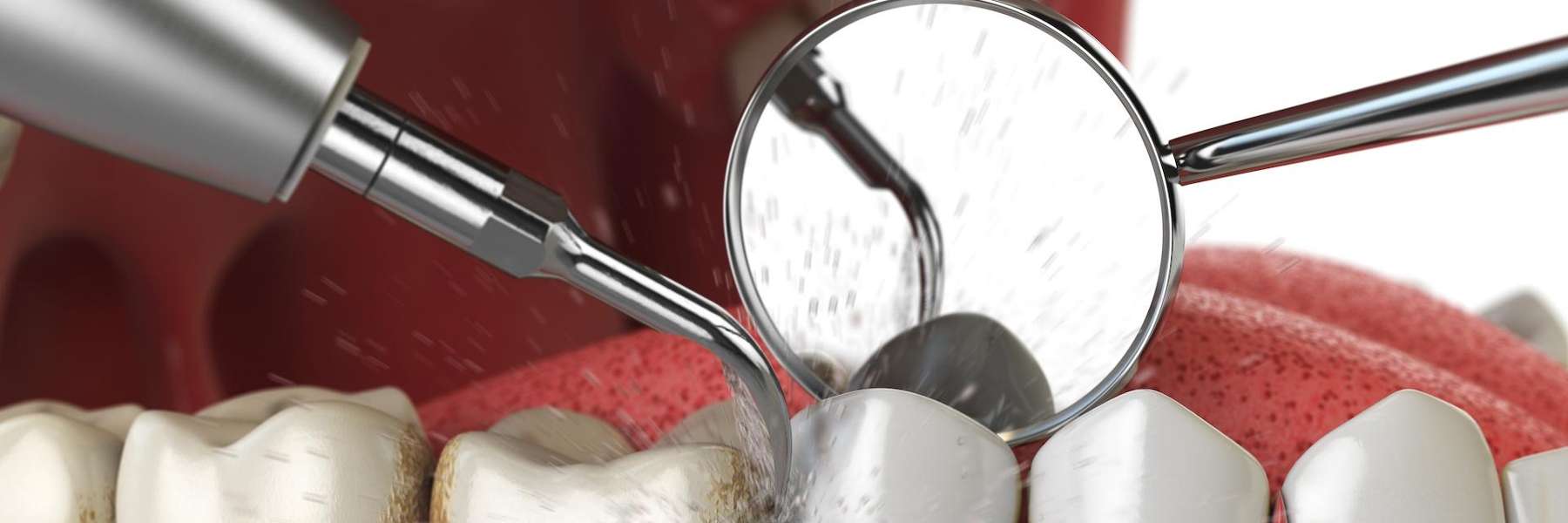
Maintaining optimal oral health involves more than just daily brushing and flossing. Regular dental cleanings and exams play a pivotal role in preventive dentistry, ensuring the longevity of a person's smile and the integrity of their bite.
We're delving here into the essential aspects of dental cleanings, from what they entail to maintaining their results to common, misguided misconceptions.
The Basics of Dental Cleanings
A dental cleaning, which is also sometimes known as "scaling and polishing," is a professional procedure performed by a dentist or dental hygienist intended to mitigate or prevent the effects of harmful substances on a person's teeth and gums. Specifically, this routine procedure focuses on removing a sticky bacterial film called "plaque" and "tartar," which results when plaque is left untreated and allowed to harden along the gumline and the surfaces of the teeth. Left untreated plaque and tartar can develop into periodontal (or gum) disease, which can lead to deterioration of gum tissue, tooth decay, and eventually even tooth loss.
No matter how diligent, at-home oral care is often not enough to fend off all plaque-causing bacteria, as certain areas in the mouth are especially tough to reach with a standard toothbrush or dental floss. This is a big reason why professional cleanings are a key part of a comprehensive oral hygiene care plan.
What Happens During a Dental Cleaning Appointment
The dental cleaning and oral exam process typically involves several key steps. Here's a breakdown of what to expect during your next appointment:
- Physical examination of the neck, jawbone, and mouth. Before the cleaning actually begins, your dentist or dental hygienist examines your neck, jawbone, and lymph nodes to ensure their health. After this, they will conduct a thorough examination of your mouth for signs of oral health issues and to identify changes since your last visit.
- Removal of plaque and tartar. Using specialized tools, the hygienist or dentist carefully and comprehensively removes all plaque and tartar from the surfaces of your teeth and along your gumline.
- Polishing. After the teeth cleaning is complete, a polishing paste is applied to buff the teeth and leave them smooth and resistant to plaque buildup.
- Professional flossing. Flossing performed by a dental professional ensures the removal of all remaining particles and plaque between teeth.
- Fluoride treatment. In some cases, a fluoride treatment is administered to strengthen tooth enamel and prevent the formation of cavities between cleanings.
The Importance of Dental Cleanings in Preventive Dentistry
Regular cleanings are a foundational part of preventive dentistry. Among the myriad benefits they provide, the most significant include:
- Cavity and gum disease prevention. By removing plaque and tartar, cleanings help prevent the development of cavities and gum disease and safeguard your overall oral health.
- Early detection. Oral exams that are performed during cleanings allow for the early detection of and prompt intervention for dental problems, as well as temporomandibular joint (TMJ) disorders and oral cancer.
- Fresher breath. Regular dental cleanings eliminate the odor-causing bacteria and plaque that lead to bad breath.
Your Role in Maintaining Oral Health Between Cleanings
While professional cleanings are vital and offer benefits that standard at-home dental care cannot, it's vital that every individual maintain a consistent and robust oral care routine. This routine generally calls for:
- Brushing your teeth at least twice a day (ideally right after consuming especially sugary, sticky, or acidic foods)
- Flossing at least once per day
- Rinsing regularly with antibacterial mouthwash
- Maintaining a healthy diet rich in vitamins, minerals, fruits, veggies, and whole grains (and limiting sugary snacks and beverages that promote plaque buildup)
- Scheduling and attending regular (twice-a-year) dental checkups to preventively address any emerging issues
Debunking Common Misconceptions About Dental Cleanings
There are a few misconceptions surrounding dental cleanings that can adversely impact a person's attitude toward dental and oral health. To help you maintain a positive approach to oral care, let's address some of these now:
- Dental cleanings are painful and uncomfortable. Advances in technology have made the process more comfortable than ever. Modern dental cleaning techniques are minimally invasive and generally cause minimal discomfort.
- "My dental professional will judge me." Dental professionals are focused on ensuring your oral health, not judging you. Be open and honest about your oral care routine, even if it's not optimal, so that your dental care team can provide helpful recommendations.
- Dental cleanings are required too frequently. Though recommendations can vary from person to person, it's recommended that the average adult undergo a professional cleaning every six months. If you have active gum disease or you are on a maintenance plan, cleanings may need to be done 3-4 times a year based on your needs.
Understanding these basic yet very important elements of dental cleanings empowers you to take control of your oral health. Combining these routine procedures with consistent at-home care will lay the foundation for a lifetime of healthy and vibrant smiles!
Professional Dental Cleanings in Watkinsville, GA
If you're in the Watkinsville area, realize that it's been a while since your last oral exam and professional dental cleaning, and want to take a more proactive role in maintaining your oral health, contact dentist Dr. Brent Nail and the team at Athens Oconee Dentistry to schedule an appointment!
